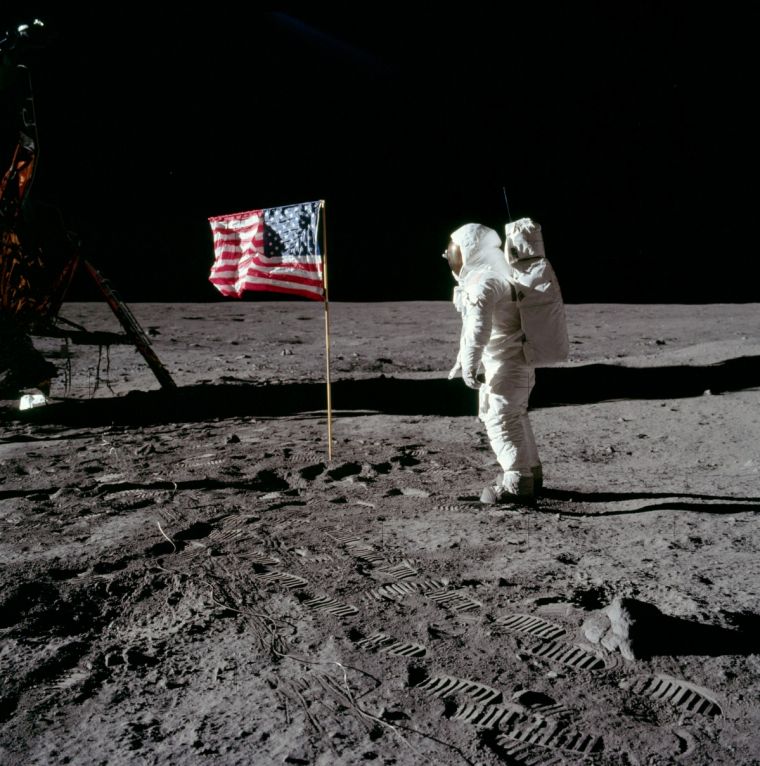Fake news and Good News: how Jesus helps us tell the difference
If you were to visit our downstairs toilet – and, if you are ever passing, and should happen to need a comfort break, you are most welcome to call and ask – you would see that I have a slightly unusual hobby.
Hung on the walls within it are some front pages of historic newspapers, including one recording humanity's first steps on the moon in 1969 and another from the Second World War showing St Paul's Cathedral surrounded by smoke in the London blitz.

Elsewhere, in various boxes in the loft, there are hundreds of others. But all the newspapers have one thing in common: they are all original, not later reproductions. They are the real deal, dating from the actual events they commemorate. I want to be able to read, touch and smell the authentic newsprint of history – not some cheap fake.
In many walks of life, getting the genuine article is important – and no more so than when it comes to matters of God and faith. Get it wrong, and people's lives can be ruined. Jesus warns one very religious group of people that through their misplaced beliefs they are 'shutting the kingdom of heaven in people's faces' (Matthew 23:13).
His encounter with another group also gives us clear pointers about truth and error and the need to be discerning. Some Sadducees, who didn't believe in the resurrection of the dead, come with a hypothetical situation in which a woman marries seven brothers in turn after each successively dies. 'In the resurrection,' they ask Jesus, 'whose wife will she be?' (Mark 12:23). Jesus responds bluntly: 'You are wrong,' he declares (27).
The Sadducees believed they had come up with an irrefutable illustration showing the absurdity (as they saw it) of any concept of life after death. So how does this incident and Jesus' response help us, today, to tell truth from error?
1. We can be religious and wrong. After all, these people were part of the mainstream community of faith. And the New Testament warns that error will arise regularly among the people of God.
2. We can quote the Bible and still be wrong. The Sadducees begin their argument by quoting Moses in the Old Testament (verse 19). And elsewhere, of course, Satan tests Jesus using words of Scripture in the story of the wilderness temptation. But, as the saying goes, 'a text without a context is a pretext'. This is brings us to the next point.
3. We can be in error because we don't know Scripture properly. Jesus rebukes them because although they can quote a verse here or there, they 'do not know the Scriptures' (verse 24) in the way they should. They had failed to grasp God's big picture and the sweep of salvation history.
4. We can be in error because we don't know the power of God. Jesus also rebukes them because as well as being ignorant of Scripture they did not know 'the power of God' (verse 24). Because they didn't comprehend God's power they had written off any idea of resurrection. Without such awareness, Scripture can remain for us, too, just an academic text or historic document like any other.
5. We must be prepared to be corrected. Jesus tells the Sadducees to their faces that they are mistaken (verse 27). Their opinion wasn't one among many that was equally valid – it was simply incorrect. Jesus did not attempt to hold irreconcilable points of view together in the interests of unity; he was prepared to call out what was incorrect. After all, as he says elsewhere, it's the truth that sets people free – not any one of a range of equally valid opinions.
Now we, of course, do not speak with the same unique authority of Jesus on matters of truth and error. As his disciples, we speak under his authority, and with the humility that comes from that. But as Christians we will want to be alert to his warnings about error. Like him, we will want to test everything by Scripture, because according to Jesus the truth about God will always lead us back to the Bible rather than away from it.
The special Anglican prayer or Collect for last Sunday sums it up well: 'Almighty God, you show to those who are in error the light of your truth, that they may return to the way of righteousness. Grant to all those who are admitted into the fellowship of Christ's religion, that they may reject those things that are contrary to their profession, and follow all such things as are agreeable to the same; through our Lord Jesus Christ, who is alive and reigns with you, in the unity of the Holy Spirit, one God, now and forever. Amen.'
David Baker is a former daily newspaper journalist now working as an Anglican minister in Sussex, England. The Rough Guide to Discipleship is a fortnightly series. Follow him on Twitter @Baker_David_A











